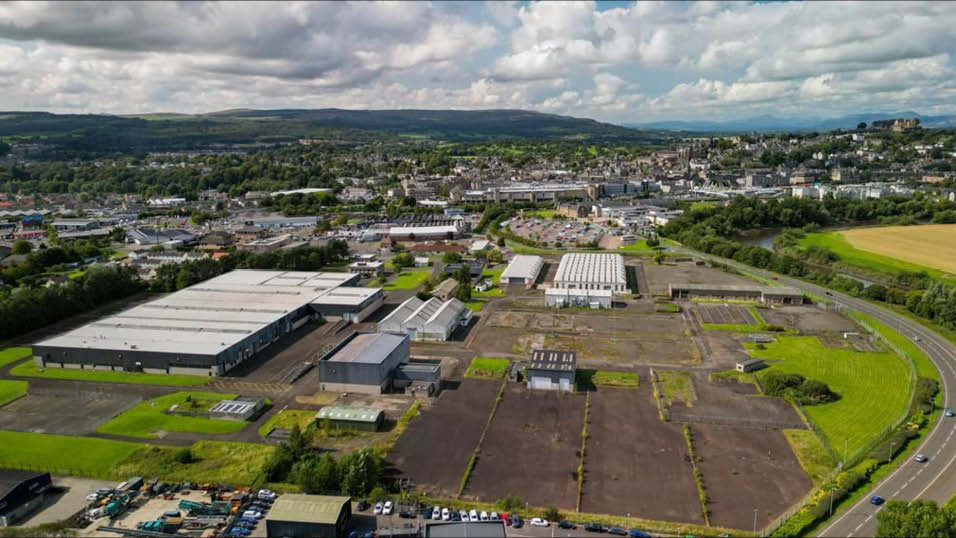As filming gets underway on new BBC One drama Sherwood from House Productions, casting has been announced and the first pictures from the set revealed.
David Morrissey will lead an ensemble cast which includes Robert Glenister and Lesley Manville.
Inspired in part by real events, and set in the Nottinghamshire mining village where Graham grew up, Sherwood is a contemporary drama at the heart of which lie two shocking and unexpected killings that shatter an already fractured community and spark a massive manhunt. As suspicion and antipathy build, between lifelong neighbours and towards the police forces who descend on the town, the tragic killings threaten to inflame historic divisions sparked during the Miners’ Strike three decades before.
Sherwood explores the controversial deployment of so-called ‘spycops’ around Britain and is the story of a community forced to re-examine the terrible events of decades ago. It is also an examination of the frayed social and political fabric of modern-day, post-Brexit Britain.
James Graham has written all six parts and will be an executive producer on the series. Lewis Arnold (Time, Des) is lead director and executive producer, and the producer is Rebecca Hodgson (The Irregulars, Deep Water). Juliette Howell, Tessa Ross and Harriet Spencer are executive producers for House Productions and Ben Irving will executive produce for BBC. Sherwood was commissioned by Charlotte Moore, BBC Chief Content Officer, and Piers Wenger, Director of BBC Drama, with BBC Studios distributing the series internationally.
Detective Chief Superintendent Ian St Clair (David Morrissey), is a lifer in the Nottinghamshire constabulary, having risen through the ranks.
Detective Inspector Kevin Salisbury (Robert Glenister) has little desire to return to Ashfield. There are too many reminders of what happened in 1984, and he’s unlikely to get the warmest of welcomes from the local police force nor the local community. But he has orders to follow.
Gary Jackson (Alun Armstrong) is a committed NUM member and one of the few miners from Ashfield on the picket line in the 80s. He won’t let anyone forget it, even decades later, which sets him at odds with his neighbours. His wife, Julie Jackson (Lesley Manville, recently confirmed to take over the role of Princess Margaret in The Crown for series 5), estranged from her sister Cathy over their divided loyalties during the miners’ strike, is as stubborn as her husband but fiercely proud of the warm household she has created for her family.
Mickey Sparrow (Philip Jackson) is an entrepreneur, proud of his portfolio which includes an axe throwing range and taxi firm. However, as much of the town suspects, most of his income comes from other, less-legal means. So, when suspicion points to the Sparrow family, Mickey’s empire comes under threat. Daphne Sparrow (Lorraine Ashbourne) is the matriarch. Forthright and fearless she will do whatever it takes to protect her family. When everything and everyone she holds dear comes under threat, it becomes apparent just how far Daphne will go for them, including her son, Rory (Perry Fitzpatrick).
Cathy Rowley (Claire Rushbrook) has always lived slightly in her sister’s shadow. The miners’ strike tore the pair apart when Cathy fell in love with UDM working miner Fred Rowley (Kevin Doyle), a quiet and reserved man. Her relationship with her introverted and deeply private stepson Scott (Adam Hugill) is also strained.
Andy Fisher (Adeel Akhtar) is a delicate and shy man who lost his wife years ago and has struggled to cope with that loss, ever since. He leans on his son Neel (Bally Gill –Wanderlust, Romeo & Juliet, NW) for emotional support, and though Neel is much obliging, Andy feels like he’s losing his son to his son’s fiancée Sarah (Joanne Froggatt – Downton Abbey, Liar, Angela Black), who struggles to hide how uncomfortable she is in her soon-to-be father-in-law’s company.
And it’s not just the arrival of the Met police which stirs up old memories. With the reappearance in the town of Yorkshireman and staunch NUM member Warnock (Stephen Tompkinson) new seeds of suspicion surrounding the events from 1984 are sown when he alludes to activity of the Met Police’s undercover police unit during the strikes.
Jon Creamer
Share this story
















